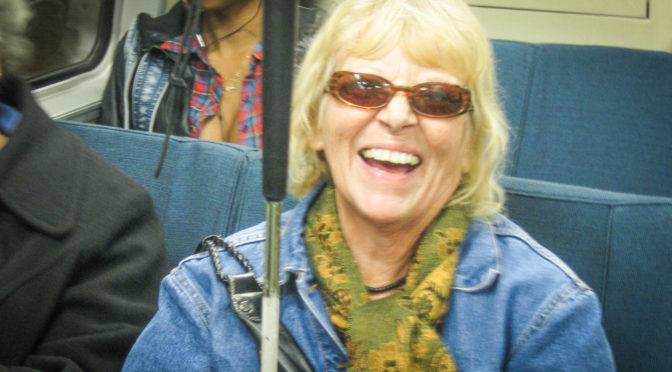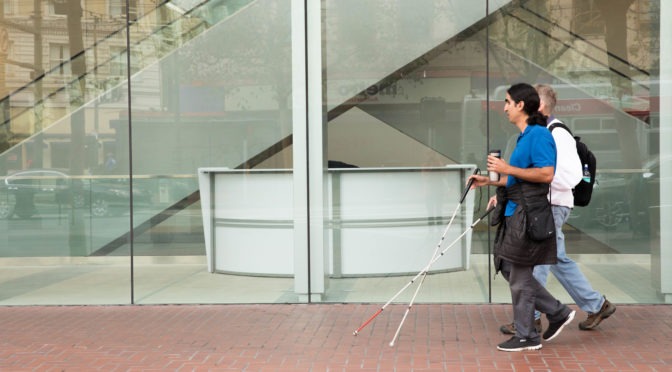Have you or someone you know recently been diagnosed as legally blind?
LightHouse is here to support you wherever you are in your changing vision.
Am I “Blind”? Am I “Visually Impaired?”
Of the 285 million people in the world who are blind or have low vision, only a relatively small percentage have no light perception. For everyone else, blindness is a gradation. Some people see quite clearly, in certain light conditions. Others see only shapes and colors.
For some, their field of vision is complex and hard to explain. The diversity of these extra functions is what makes blindness particularly confusing to the unacquainted observer.
For those with changing vision, the daunting part is not usually the fear of darkness, but the fear of admitting that you’re different.
Who qualifies for LightHouse services?
LightHouse is based in the San Francisco Bay Area and we serve the greater Bay Area and north to the Oregon border. If you are outside of our geographic area, please still give us a call and we can connect you to a service provider in your area.
If you have a blind or visually impaired child between the ages of 0 to 3, you are eligible for LightHouse Little Learners. Little Learners serves the California Central Valley and the Greater Bay Area.
If you have both vision and hearing loss, our Deafblind program serves all of California.
What types of programs do you offer?
Access Technology
Learn how to use technology, like smart phones and computers, using accessible technology through one-on-one training.
Community Services
Throughout the year, we host outings, classes, recreational activities, and events for community members who are blind or have low vision of all ages to learn, connect, and thrive.
Deafblind Program
The Deafblind Program provides training, resources and support to persons who have both vision and hearing loss. The goal of the program is to ensure that deaf-blind individuals have access to information and the skills needed to live independent and productive lives. As part of this goal, the LightHouse operates the FCC program to ensure deaf-blind individuals receive free equipment and training to suit their needs.
Enchanted Hills Camp
Founded in 1950 by Rose Resnick, Enchanted Hills now holds not only our annual summer camp sessions, but also hosts classes, workshops, retreats and seminars in a beautiful setting high atop Napa’s Mount Veeder.
Independent Living Skills
Independent Living Skills include training in orientation and mobility, braille, cooking, and other independent living skills. Instruction methods include one-on-one, group, ongoing, and immersive options.
Little Learners
Launch in 2021, the LightHouse Little Learners program is here to help families with children aged birth to three who are blind, Deafblind have low vision, or a neurological visual impairment.
Volunteer Services
Volunteers
Youth Programs
The LightHouse offers a diverse array of outings, social events, and personal/professional development opportunities for young adult and high school-aged youth.
How do I get started?



